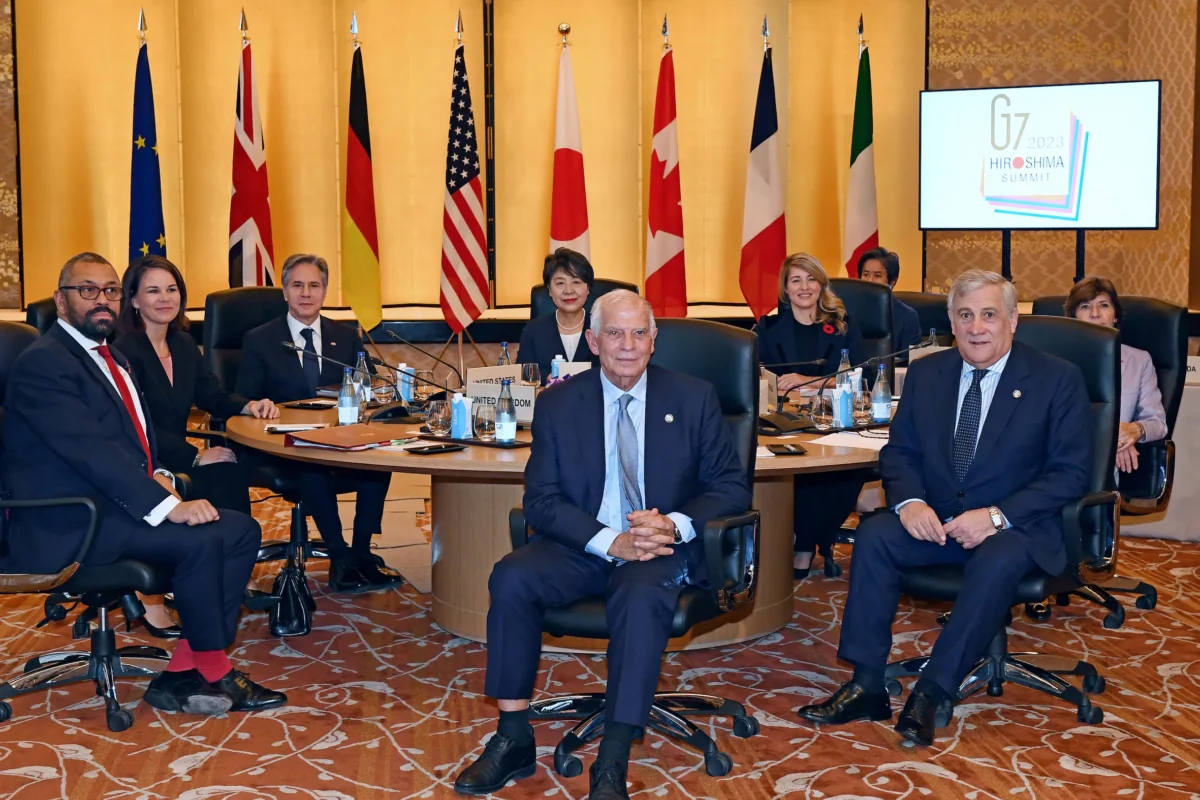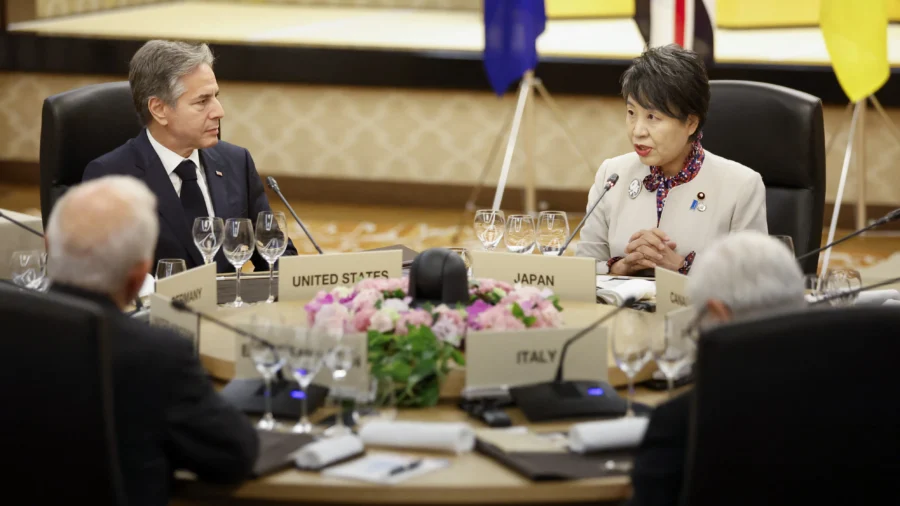Top diplomats from the Group of Seven leading industrial democracies announced a unified stance on the Israel-Hamas war on Wednesday in Tokyo, condemning Hamas’s violence and supporting Israel’s right to self-defense while calling for “humanitarian pauses” to speed up the arrival of aid to civilians who remain trapped in the Gaza Strip.
In a statement following two days of intense talks, the nations said Israel had the right to defend itself but emphasized “the need for urgent action” to help civilians in the besieged Palestinian enclave, and urged the warring sides to comply with international humanitarian law.
“All parties must allow unimpeded humanitarian support for civilians, including food, water, medical care, fuel and shelter, and access for humanitarian workers,” said the statement, hammered out by U.S. Secretary of State Antony Blinken and foreign ministers from Britain, Canada, France, Germany, Japan, and Italy.
“We support humanitarian pauses and corridors to facilitate urgently needed assistance, civilian movement and the release of hostages.”
The Israeli bombardment of Gaza has reportedly killed more than 10,000 Palestinians—around 40 percent of them are children, say health officials in the Hamas-ruled territory.
The ministers noted that the G7 is “working intensively to prevent the conflict from escalating further and spreading more widely,” including sanctions and various measures to financially cut off Hamas’s funding.

Israel got a warning as well, as the G7 condemned “the rise in extremist settler violence committed against Palestinians,” which they called “unacceptable, undermines security in the West Bank, and threatens prospects for a lasting peace.”
“All of us want to end this conflict as soon as possible and meanwhile to minimize civilian suffering,” Mr. Blinken said. “But, as I discussed with my G7 colleagues, those calling for an immediate cease-fire have an obligation to explain how to address the unacceptable result that would likely bring about: Hamas left in place with more than 200 hostages, with a capacity and stated intent to repeat October 7th again and again and again.”
Mr. Blinken said that “G7 unity is stronger and more important than ever.”
The Future of Gaza
As for what happens after the conflict between Hamas and Israel in Gaza ends, the ministers agreed that “a two-state solution … remains the only path to a just, lasting, and secure peace.”
Mr. Blinken stated that Gaza could not be under Hamas or Israeli control.
“Now, the reality is that there may be a need for some transition period at the end of the conflict,” he said. “We don’t see a reoccupation and what I’ve heard from Israeli leaders is that they have no intent to reoccupy Gaza.”
However, in an ABC interview that aired on Monday, Israeli Prime Minister Bibi Netanyahu made it clear that Israel has interests to somehow maintain security control over Gaza.
“Israel for an indefinite period will have the overall security responsibility because we’ve seen what happens when we don’t have it,” he said.
Israeli Foreign Minister Eli Cohen told the Wall Street Journal late Tuesday that Israel has no ambitions to govern the Gaza strip. “We don’t want to run their lives. We just want to protect our people.”
Mr. Cohen said his country would like to see the territory be governed by an international coalition, including Muslim-majority countries alongside the United States, the European Union, and leaders from Gaza.
Looking beyond the war, Mr. Blinken said, “key elements should include no forcible displacement of Palestinians from Gaza … no use of Gaza as a platform for terrorism or other violent attacks, no reoccupation of Gaza after the conflict ends, no attempt to blockade or besiege Gaza, no reduction in the territory of Gaza. We must also ensure no terrorist threats can emanate from the West Bank.”
“We believe that the time is now to start the conversation about the future,” he said.
The Associated Press contributed to this article.

